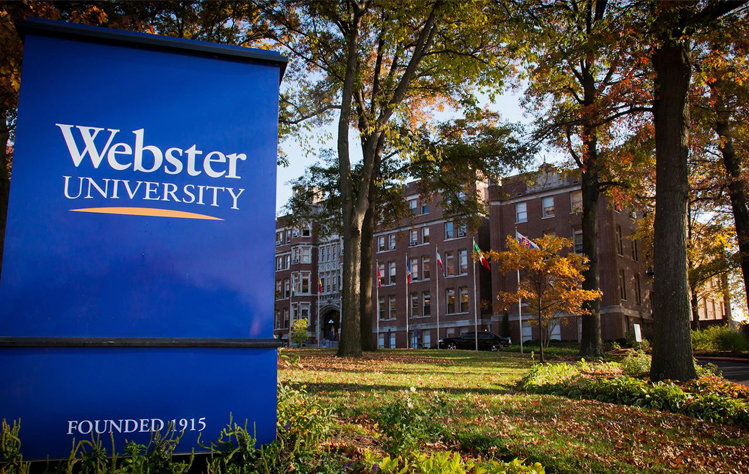Webster University Creates Laboratory to Study Global Policy Issues
February 12, 2024
 Paul Hoeffken, a business administration junior at the George Herbert Walker School
of Business & Technology, took an interest in energy policy after the Russian invasion
of Ukraine caused gas prices in the United States to spike. He saw this as a unique
international security issue, an “unconventional threat,” that showed how even a minor
disruption of the flow of oil in one part of the world can have drastic global economic
consequences.
Paul Hoeffken, a business administration junior at the George Herbert Walker School
of Business & Technology, took an interest in energy policy after the Russian invasion
of Ukraine caused gas prices in the United States to spike. He saw this as a unique
international security issue, an “unconventional threat,” that showed how even a minor
disruption of the flow of oil in one part of the world can have drastic global economic
consequences.
But Hoeffken was not sure how to expand on the idea and turn it into a research paper that could be submitted to a professional journal. He mentioned it to International Relations Professor Dani Belo, whose class he was taking in Webster University’s College of Humanities and Social Sciences. Belo told him about a new project he’s spearheading at Webster University – the creation of the Webster Global Policy Horizons Lab.
The Webster Global Policy Horizons Lab is a hub where students and faculty from all disciplines can explore national and global security issues and generate peer-reviewed papers and analytical policy papers. The lab, which is in Room 104 in the H. Sam Priest Building, is designed to increase collaboration and research into security issues across all disciplines and campuses in Webster University’s worldwide network.
Hoeffken jumped at the opportunity and is now a research assistant in the lab. He is using the lab to research energy relations between the Baltic States and Russia before the annexation of Crimea in 2014.
“This is an exciting opportunity. My goal at the end of this semester is to co-write a policy paper with Professor Dani Belo about the Economic Security of the Baltics and how that relates to the unconventional threats and their impacts on institutions,” Hoeffken said. “Everyone here at the lab is a treasure to work with, and I look forward to seeing what research we can output.”
The lab opened in the Fall of 2023 in the H. Sam Priest Center for International Studies, Belo said. Since then, five students (including Hoeffken) have become researchers and are working on various research projects.
“Basically, the space is a national and international security focus research lab,” Belo said. “It explores different policy challenges, with the intent of creating original research that will inform policy solutions across different security-related issues nationally and internationally, everything from unconventional threats and economic security to security threats.”
In 2024 the Lab onboarded two student researchers, Josh Hayes and Samantha Ramay, who are conducting intensive policy-focused research and will publish their analytical reports on the various ongoing conflicts involving Israel, Gaza, Iran and Yemen. Samantha and Josh are recipients of the Don Maland International Conflict Resolution Scholarship.
A key purpose of the Lab is to equip Webster students with practical knowledge and skills to pursue careers in the policy community.
In addition, the students who become researchers in the Lab will have an opportunity to represent Webster University in the Schuman Challenge, an annual academic competition for undergraduate students from U.S. colleges and universities to engage in rigorous dialogue on transatlantic issues, run by the European Delegation to the United States. Each year, the European Delegation announces a specific topic, and each team in the challenge has to research it and then present their ideas before foreign policy professionals, peers, and other professionals who work in the world of international affairs, including the EU Ambassador to the United States. Belo hopes to have a Webster team in the 2025 challenge.
Besides students, the resources of the Lab are also open to faculty at all of Webster’s international locations. “This will facilitate international collaboration on original research and policy analysis that can then be shared on a global scale.”
Soon, Belo also hopes to invite universities from other countries to also participate in the lab, thus creating an international web of cooperation on topics of global security.
Any student who wishes to participate in the Lab should contact Belo at danibelo@webster.edu and by visiting the Lab website at https://www.webster.edu/humanities-social-sciences/hprr/global-policy-research-lab.php.
